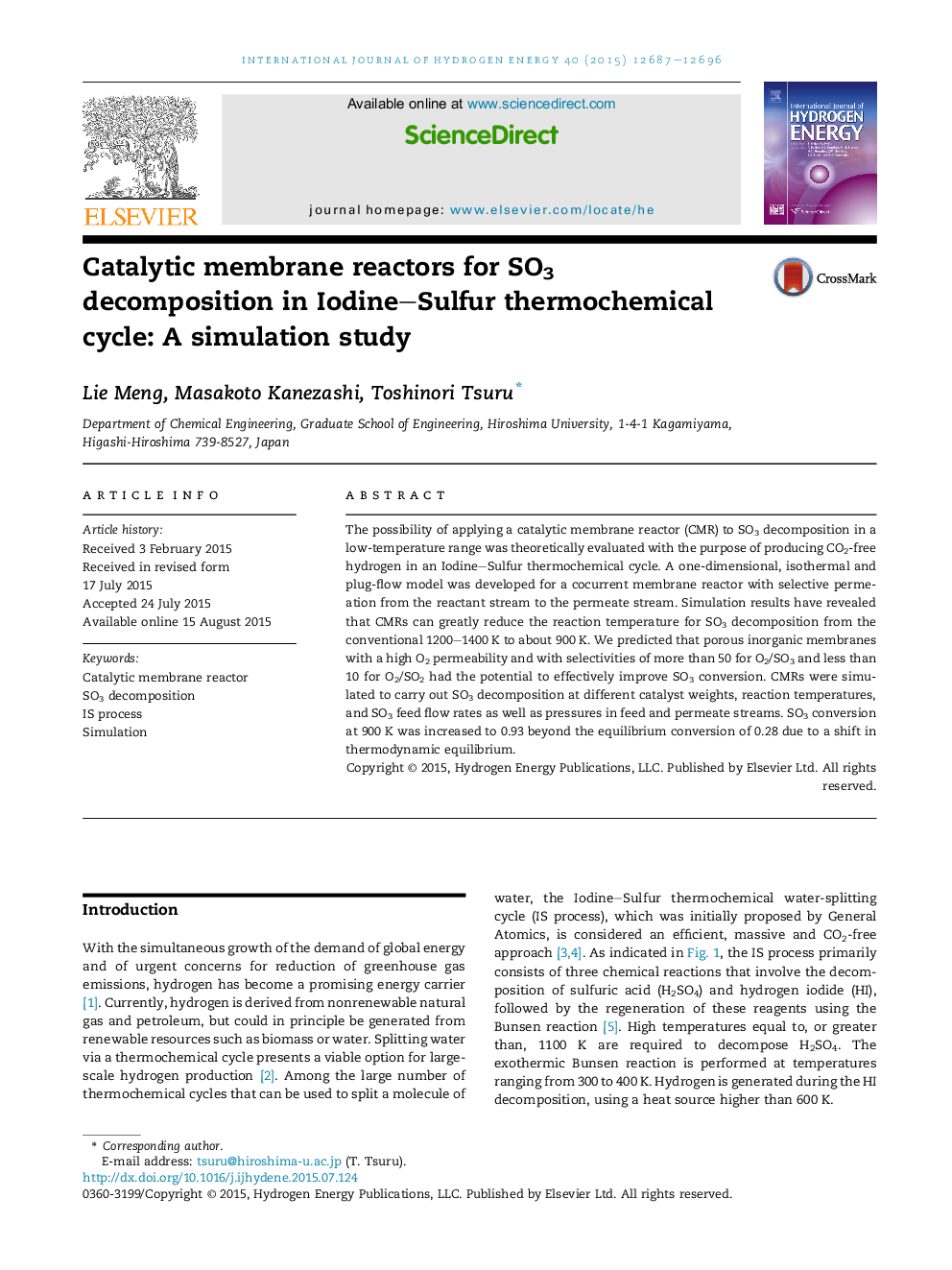| کد مقاله | کد نشریه | سال انتشار | مقاله انگلیسی | نسخه تمام متن |
|---|---|---|---|---|
| 1278786 | 1497436 | 2015 | 10 صفحه PDF | دانلود رایگان |

• The possibility of applying CMRs to the IS process was theoretically evaluated.
• A one-dimensional, isothermal and plug-flow model was proposed for CMRs.
• Porous inorganic membranes can effectively improve the SO3 conversion.
• CMRs greatly reduced the reaction temperature from 1200–1400 K to 900 K.
• SO3 conversion at 900 K was increased to 0.93 (equilibrium conversion = 0.28).
The possibility of applying a catalytic membrane reactor (CMR) to SO3 decomposition in a low-temperature range was theoretically evaluated with the purpose of producing CO2-free hydrogen in an Iodine–Sulfur thermochemical cycle. A one-dimensional, isothermal and plug-flow model was developed for a cocurrent membrane reactor with selective permeation from the reactant stream to the permeate stream. Simulation results have revealed that CMRs can greatly reduce the reaction temperature for SO3 decomposition from the conventional 1200–1400 K to about 900 K. We predicted that porous inorganic membranes with a high O2 permeability and with selectivities of more than 50 for O2/SO3 and less than 10 for O2/SO2 had the potential to effectively improve SO3 conversion. CMRs were simulated to carry out SO3 decomposition at different catalyst weights, reaction temperatures, and SO3 feed flow rates as well as pressures in feed and permeate streams. SO3 conversion at 900 K was increased to 0.93 beyond the equilibrium conversion of 0.28 due to a shift in thermodynamic equilibrium.
Journal: International Journal of Hydrogen Energy - Volume 40, Issue 37, 5 October 2015, Pages 12687–12696